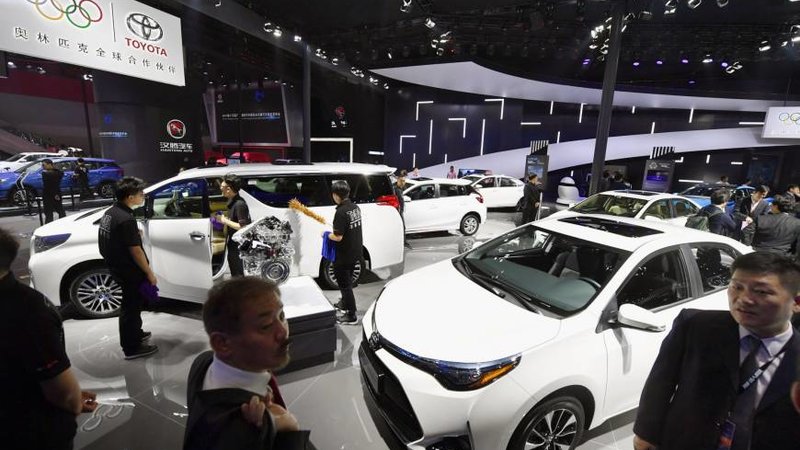Toyota is the latest automaker to announce a significant electrified push for the next decade as the global car market tries to embrace more plug-ins and fuel cells to meet increasingly stringent emissions standards.
Today, 2016’s largest producer of automobiles announced it would introduce at least 10 new electric vehicles by the early 2020s — first in China and then globally. It says it plans to sell at least 5.5 million electrified vehicles by 2030, including 1 million “zero-emissions” vehicles that include full battery electric vehicles and hydrogen fuel cell vehicles.
It’s a big move for Toyota, which has been lagging behind rivals such as crosstown rival Nissan in the electric car game. Despite this, Toyota is a leader in gas electric hybrids, and currently markets the Mirai fuel cell vehicle and the Prius Prime plug-in hybrid. But it is also behind giants General Motors and Volkswagen Group in developing long-range plug-in vehicles.
TOYOTA IS PLAYING CATCH UP TO SOME BIG RIVALS IN THE EV GAME
Not that it’s moving away from hybrids. Toyota said it would electrify its entire lineup by 2025 thanks to more investment in the hybrid system that debuted 20 years ago in the first Prius. Many of the company’s Toyota and Lexus models offer a hybrid equivalent, but all models eventually will have a corresponding gasoline-electric model.
Monday’s announcement follows a move in September with Toyota joining with Mazda and Denso Corporation to form a new company for battery technologies. Toyota may be late to make an “electrify everything” pledge, but it wants to put up a fight to keep its standing as a dominant automaker.






